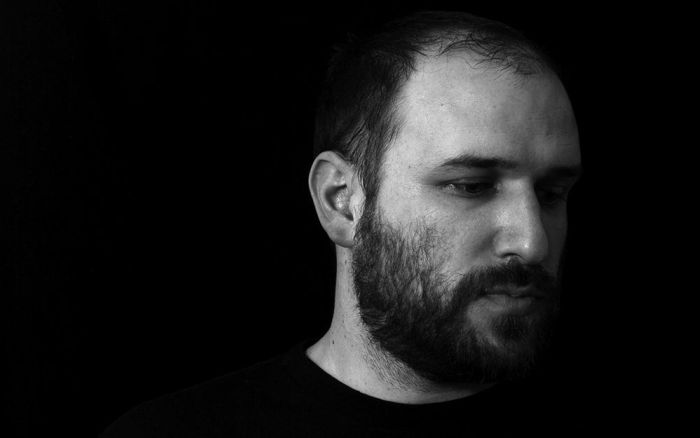Weekend Reads: Star Trek: Discovery, Apple’s Bad Design, Satanists & Video Games, the End of Football, Rick & Morty

So far, Geoffrey Reiter has been pretty impressed by Star Trek: Discovery. “Judging from its early episodes and the comments of its writers, Discovery doesn’t attempt to subvert the ethics and ideals of Star Trek so much as it aims to present them in a more realistic framework.”
Television storytelling has become increasingly serialized in recents years, and that’s not necessarily a good thing. “Save for sitcoms, it seems like there’s a definite polarization happening in terms of serialization versus episodic television. Along with with seasons of television that are binged, analyzed, and dissected endlessly for clues about where they’re going, there’s also been a rise in anthologies, miniseries, and made-for-TV movies… It’s harder now for a show to have a few perfect episodes — episodes that, on their own, justify the existence of the whole show. Everything is so intertwined that you can’t tease out a single episode that’s fun to watch on its own merits.”

Physicists believe there’s no way we could be living in a computer simulation. “The researchers calculated that just storing information about a couple of hundred electrons would require a computer memory that would physically require more atoms than exist in the universe.” Good… one less existential crisis to worry about.
Joshua Topolsky makes a bold claim: Apple is really bad at design. “Since [iOS 7’s] release, the company has strayed further and further from a clear sense of purpose in its design, and drifted into a kind of mid-life malaise in which nothing seems to feel, work, or look quite the way it should. The grand gestures — the “one more things” — are still there, but Apple’s foundation — the lust-worthy design, the cohesion, the “it just works”-ness of it all — seems to be ebbing away with each new product.”

This is going to be controversial, but shouldn’t be: Satanists say that video games help them practice their religion. “Satanists see traditional Christian vices as great human assets. Pride, individualism and influence are their bread, butter and blood. Satanists seek to amass power and experience pleasure, and that’s by-the-book life advice. To that end, over half a dozen Satanists I interviewed say that games are playgrounds for their Satanic virtues to run free.” Nothing is secular, folks. All things have a religious aspect, regardless of what you (don’t) believe.
This review of Middle-Earth: Shadow of War is evidence that if you don’t under the whole point of Tolkien’s storytelling, then you shouldn’t make video games about it. “But in the end, it’s not these lore-nerd grievances that are the depths of Shadow of War’s bizarre, twisted take on Lord of the Rings, as crazy as they are. Because really, what makes Shadow of War such an un-LotR-esque experience is that it’s ultimately a game about people who cast aside hope and embrace evil in an attempt to control its power, and fail in spectacular ways while doing so.”

It’s only a matter of time, but football is going to come to an ignominious end. “Diehard fans once thrilled by simulated violence are losing interest with ever constrained penalty rules and concussion concerns. The suspension of disbelief required to enjoy the game is waning: talks of brain damage, flags no longer able to unify people around soldiers’ sacrificial deaths, spousal abuse, and racial undertones are all exposing football as just a silly game to appease desires for tribalism and aggression — and make fat cat owners fatter.”
What, exactly, has Facebook become? “There are real consequences to our inability to understand what Facebook is. Not even President-Pope-Viceroy Zuckerberg himself seemed prepared for the role Facebook has played in global politics this past year. In which case, how can we be assured that Facebook is really safeguarding democracy for us and that it’s not us who need to be safeguarding democracy against Facebook?”

David Bazan is relaunching Pedro the Lion so Noisey asked him to rank all of the Pedro the Lion albums. Bazan left the Christian faith years ago but I really respect and appreciate the way he approaches his older, more overtly religious material: “There are some of the songs that I can’t play now because those lyrics coming out of my mouth would just be like a false confession. But that doesn’t mean I don’t still love those songs. I mean, ‘Secret of the Easy Yoke’ is a great example. I’m pretty sure I can’t sing that tune without it feeling really, really wrong. But I’m still really proud of that song.”
The recent Rick and Morty McDonalds Szechuan Sauce fiasco reveals the dark underbelly of geek culture. “[A]s Rick and Morty goes, so goes geekdom — an increasingly polarized culture in which more and more previously marginalized individuals are participating openly in geek spaces even as their gatekeepers seem to nurture more malcontent. It has undeniably gotten more difficult, in recent years, to detangle modern geek culture and fandom from the toxic substrains of nihilism, entitlement, trolling, misogyny, and often a general lack of empathy that fuel its darkest corners.”

Mike Monteiro laments the current state of Twitter. “Their goal was giving everyone a voice. They were so obsessed with giving everyone a voice that they never stopped to wonder what would happen when everyone got one. And they never asked themselves what everyone meant. That’s Twitter’s original sin. Like Oppenheimer, Twitter was so obsessed with splitting the atom they never stopped to think what we’d do with it.”
What’s the history of the ampersand? “Roman scribes would write in cursive so as to increase the speed of their transcription, often combining letters into one form to save time while also increasing legibility, where certain characters overlap in a visually discordant manner — this was the birth of the ligature. The ampersand is simply a ligature of the letters E and T (et being the latin word for and).” Also, the ampersand used to be the 27th letter in the English alphabet.

Kaitlyn Schiess reviews Darren Aronofsky’s controversial Mother! and what it says about God. “But that’s the film’s real gut-punch: without justice, divine love only causes destruction. Without the omnipotence, omniscience, and righteousness of the real God, this ‘God”s love fails time and time again. Instead of redemption and restoration, there’s only an endless cycle of creation, destruction, and re-creation… [T]he most heartbreaking part of this deeply disturbing film is that Aronofsky’s vision of God hardly varies from that of most Christians.”
Trump’s recent handling military families and funerals reveals the ugliness of his character. “Trump right now is under the harshest, white-hot light of his presidency, and we’re seeing more clearly than ever who he truly is. His handling of the deaths of four Green Berets is a case study in everything that is wrong with the president — all of his pathologies and deficiencies. The scandal has revealed his character in full, and it’s even uglier than Michelle Obama imagined.”